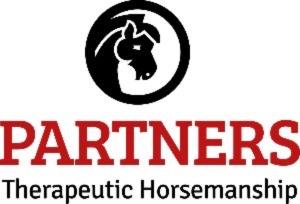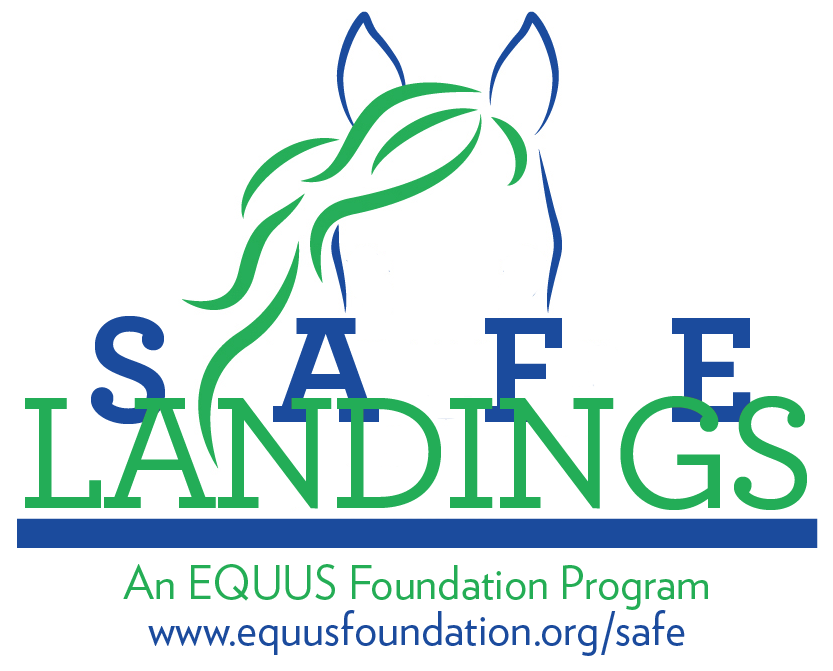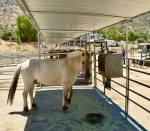Are we the next chapter for your horse?
Mountainview Ranch
Home of Partners Therapeutic Horsemanship
Lakeside, CA
We are seeking a that meets the following criteria:
Age Range:
Gender:
Size Preference:
Activities that the equine will be expected to perform:
Location: The equine will be located at Mountainview Ranch, 15665 El Monte Road, Lakeside, CA 92040
Click on photo to view larger image
Close X
Total acreage dedicated specifically to the horses: 9.85
The organization has use of the following at this facility:
Structures/Barns: 0 Run-in sheds: 0
Pastures: 0 Paddocks/Pens/Turnout Areas: 7
Uncovered Outdoor Rings: 5 Covered Outdoor Rings: 0
Indoor Rings: 0
Horses do not have assigned stalls in the structure(s).
Horses are stalled for 17+ hours per day, on average.
Horse Turn Out Practices:
Equines are out 1 to 3 hours per day
The following describes the pastures at this facility:
This facility does not have pastures where equines can graze on pasture grass
The following describes the turnout areas other than pastures at this facility:
This facility has a written plan in place for the maintenance of turnout areas, which includes a schedule for cleaning, manure removal, and dragging
A dedicated staff person(s) is responsible for the maintenance of turnout areas
All turnout areas are fenced to prevent escape or injury
Fencing checks, such as broken or missing planks, loose fence posts, exposed or loose nails, detached wires, etc., are done regularly
Horses have access to clean drinking water at all times
Hoof care is provided for each horse: Every 4-8 weeks and when an issue arises
Dental care is provided for each horse: Annually and when an issue arises
Each horse is visually and physically checked by personnel at the facility: Every day or 6 days a week
Close X
The organization requires the following with respect to the health status of the equine prior to acceptance and arrival at the organization:
Vaccination records that have been administered within the last 12 months
If health records are not available or are out-of-date, our veterinarian will administer appropriate vaccinations
The organization has the following policies in place prior to an equine being accepted and/or arriving at the facility:
The owner of a potential equine is interviewed over the phone or in person prior to seeing the equine
The equine is evaluated at its place of residence
The owner completes an application/contract which constitutes the agreement between the owner and our organization
Equines are on trial for up to 30 days
The trial period may be reduced based on the equine's progress
During the trial period, the organization accepts financial responsibility for the care of the equine, including board, feed, shoeing and any necessary veterinary care, up to a fixed amount agreed upon by the organization and the owner
The trial period may be terminated by either the organization or the owner for any reason
The organization assesses equines for following skills and behaviors:
Retrieval from a pasture/paddock
Leading with a halter and lead rope
Temperament, disposition and attitude, such as rated from very calm to very high spirited
Saddling
Bridling
Lunging
Loading onto and unloading off a trailer
Mounting and dismounting
Riding at the walk
Riding at the trot
Riding at the canter
Riding by a beginner and/or unbalanced rider
Tolerance to unusual objects and loud noises
Known vices, i.e., cribbing, biting, kicking, weaving, stall walking, etc
Grooming
Bathing
Clipping
Tolerance to multiple handlers at the same time
Following arrival at the facility, the following is performed:
Physical examination by a veterinarian upon arrival
Physical examination by trained barn staff
Photographs are taken of each equine upon arrival at the facility and kept with the equine's health records
A Henneke Body Conditioning Score or other body conditioning score is assigned
Physical examination by a farrier
Physical examination by a dentist
Fecal test
Vaccinations
De-worming
The equine is confined to a designated and separate area for isolation and quarantine at the facility for a prescribed period of time
Our organization has the following policies and procedures in place pertaining to the ongoing assessment of horses in its care:
The Henneke Body Condition score or other body conditioning score is updated at least annually
Photographs are taken of each equine annually and kept with the equine's health records
Equines at our facility may be treated by an equine chiropractor
Equines at our facility may be treated by an equine massage therapist
Physical examination by a veterinarian at least annually
Horses provided formal training (groundwork or riding):
Weekly
Our organization has the following policies and procedures in place pertaining to the weight-carrying or workload capabilities of horses/equines that are ridden in our care:
Our organization evaluates at least annually and maintains a written record of the weight-carrying and workload limitations for each equine that is ridden
The following variables are considered in determining the weight-carrying and workload limitations for each equine that is ridden:
Equine age, weight, breed, body condition, fitness, balance, health and soundness
Equine conformation to include the top line, length of back, strength and width of loin, bone density (measured by the circumference of the cannon bone just below the knee)
Participant weight, height, body proportions, balance, fitness and riding skills as well as behavioral issues and safety concerns
Weight and proper fit of the saddle and other equipment
Terrain and footing in the working environment
Duration and frequency of working sessions, as the frequency with which an equine is subjected to maximum weight carrying and/or workload
Nature and pace of work, repetitive or varied, radius of turns, degree of incline and regularity of footing when equine is subject to maximum weight-carrying capacity
Temperature and/or weather conditions
Seasonal impact on the equines' workload and weight-carrying capabilities and limitations
Additional information about intake, assessment & training policies and practices:
Efforts are made to ensure that sick, affected, and/or quarantined equines do not have contact with other equines, and all reasonable precautions are taken to prevent spread of disease by humans, equipment, and/or disposal of potentially contaminated substances. Prospective horses are first placed in the quarantine corral, and evaluated by staff to determine if the horse is a likely candidate to be a therapy horse, once removed from his familiar surroundings. Preliminary assessments of temperament, soundness, ride ability, etc, are done by staff and senior volunteers. If the horse is deemed to be a likely candidate, our veterinarian evaluates the horse, vaccinates if required, and assigns a Hennecke body score. Upon passing the vet check, the farrier is brought in to determine any special, or change, in foot care that may be needed. (Our Vet is also our dentist) Hennecke Body score is updated annually by our vet, or may be changed at a vet call. PTH staff do quarterly "weigh ins" using measurements from a tape measure as well as observations by staff and outside advisors.
The organization has the following policies related to breeding and stallions:
Our main facility where our organization conducts its programs does NOT breed equines.
Close X
Rehoming
Our organization has the following re-homing (adoption/purchase) policies and procedures in place:
All potential adopters/purchasers complete a written contract which constitutes the agreement between our organization and the new owner
Our organization will only re-home an equine to a location where another equine resides
Potential adopters/purchasers must visit our organization and be observed with the equine on site
The distance of a potential adopter/purchaser's home from our facility is a consideration for when re-homing an equine
Our organization conducts a site visit of the adopter/purchaser's facility before the transfer of the equine to the adopter/purchaser's facility
Potential adopters/purchasers are encouraged to do a short-term, on-site foster with the equine
The agreement reflects that any individual or organization in possession of the equine as of the date of the agreement and any time thereafter is bound to not sell the equine at auction for slaughter or allow the equine to be sold, transferred, released, or otherwise placed into possession of any person or organization that will cause or allow the equine to be sold at auction for slaughter.
The agreement states that re-homed equines cannot be bred
The agreement states that adopters/purchasers can return an equine to our organization free of charge
The agreement states that adopters/purchasers are required to provide updates (photos, vet records) for one year
The organization requires references from the following:
Veterinarian
Personal/Other
Transfer of ownership occurs:
Immediately (at the time of adoption/purchase) or less than one year
has the following policies and procedures related to horses that need to be retired, are no longer able to contribute to the mission of the organization, and/or are no longer manageable:
Equines may remain at our organization for their lifetimes
Equines may be found suitable homes by our organization
Equines may be returned to their owners
In the case an equine is unsound and/or unhealthy and cannot be treated to relieve suffering, the equine may be euthanized upon the recommendation of the veterinarian
Additional information about rehoming policies and practices:
Partners does not re home horses as a rule. Horses that have been leased to PTH are returned to their owners.
View Re-homing Agreement
Close X
The organization has the following policies and procedures related to horses that need to be retired, are no longer able to contribute to the mission of the organization, and/or are no longer manageable:
Equines may remain at our organization for their lifetimes
Equines may be found suitable homes by our organization
Equines may be returned to their owners
In the case an equine is unsound and/or unhealthy and cannot be treated to relieve suffering, the equine may be euthanized upon the recommendation of the veterinarian
The organization has the following policies related to euthanasia:
Our organization will never have an equine euthanized for space
Our organization will have an equine euthanized upon the recommendation of the veterinarian if the equine is a threat to itself, other equines, or people
Our organization will have an equine euthanized upon the recommendation of the veterinarian after all reasonable treatment options have been explored
Euthanasia is done on site when possible to decrease trauma from transport
Disposal of the carcass is handled within 24 hours
The following are authorized to administer the procedure for the organization in accordance with state laws:
Veterinarian
Close X
Partners Therapeutic Horsemanship
15665 El Monte Road
Lakeside CA 92040
619-788-6375
Last Updated 2023-08-06
Public Charity
Mission/How we are involved with horses:
Partners Therapeutic Horsemanship is a PATH (Professional Association of Therapeutic Horsemanship International) member Center in San Diego County, providing therapeutic horsemanship as a unique means to improve the quality of life for those with special need, their families and the community.
Primary Focus involving horses
(Horse Welfare, Public Service, Sport & Recreation):
Public Service
The organization is directly responsible for the care and shelter of equines involved in the organization's programs.
The organization conducts Equine Assisted Services (EAS) in accordance with the EQUUS Foundation Guidelines on Qualifications of Organizations Conducting Equine-Assisted Services (EAS)). The organization does not provide community outreach and/or public education programs involving horses.
100% of our total programs and services are equine-related.
The organization conducts its horse-related programs at one facility.
|

EIN: 20-1928582
Founded: 2004

2023
|
View our WEBSITE
View our GUIDESTAR PROFILE
View our EQUINE WELFARE NETWORK PROFILE
View our PHOTO GALLERY
36/2030/




